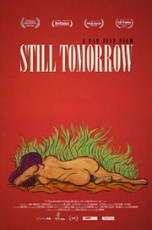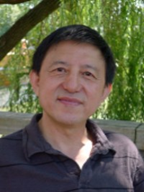|
 |
|
| Collective Actions in Post-Mao China: Between Chaos & Discipline |
|
| 2017/4/27 23:49:57 | 浏览:2654 | 评论:0 |
|
|
|
|
|
|

|
Thursday, May 04, 2017
4:00 PM - 5:30 PM
Bunche Hall 10383 | | |
|
Talk by Dingxin Zhao, University of Chicago
This talk argues that social movements and collective actions in post-Mao China have developed in three overlapping stages. The first stage, between 1976 and 1989, is characterized by the large-scale state-centered protests. The second stage covers the period roughly between 1992 and 2002. Protests of this period tend to be small-to-medium in size, local, and economic-oriented. Most protests of this period are also competitive and reactive rather than proactive in nature. The third stage started around 2002 and lasted until 2012. In this period, middle class protesters gained significant rights consciousness, protests turned increasingly proactive and grew a strong populist tendency, and many protests(particular the newly emerged online protests)have experienced a tendency of partial repoliticalization. The last stage seems to have taken several new characteristics:middle class right consciousness leveled off, politicalizing movement was shirking, online protest has lost its potency. And above all, the protesters have increasingly acted like "subjectizens"(a term coined to denote an attitude assuming characteristics of both traditional Chinese subjects and modern citizens). This talk provides an explanation to this pattern of development and speculates on the future trends of collective actions in China.
Dingxin Zhao is Max Palevsky Professor of Sociology at the University of Chicago and Qianren Jihuai Professor of Zhejiang University. He is also the director of the Center for Advanced Studies in Humanities and Social Sciences of Zhejiang University. His research covers the areas of historical sociology, social movements, nationalism, social change, and economic development. His interests also extend to sociological theory and methodology. Zhao has publications in journals such asAmerican Journal of Sociology, American Sociological Review, Social Forces, Sociology, American Behavioral Scientist, Mobilization, Problems of Post-Communism and China Quarterly. He has published two awards-winning books inEnglish:Power of Tiananmen (2001)and The Confucian-Legalist State:A New Theory of Chinese History (2015). He has also four books in Chinese:Social and Political Movements (2006), Eastern Zhou Warfare and the Rise of the Confucian-Legalist State (2006), The Limit of Democracy (2012), and State and War:A Comparative Analysis of the Chinese and European Historical Development (2015).
| | | | |
|
|
Wednesday, May 03, 2017
5:00 PM - 12:15 AM
UCLA Perloff Decafe | | |
|
Talk by Rania Ho & Wang Wei, Arrow Factory art space, Bejing
Founded in 2008, Arrow Factory is one of the longest standing, fully independent, non-commercial art spaces in Beijing. Located in a narrow alley inside the city center, this 150 square foot space spearheads various forms of site-oriented artistic display, collaboration and experimentation by local and international contemporary artists. This talk will give some background on Arrow Factory, and introduce our recent publication, "Arrow Factory:The Next Four Years," which comprehensively documents the twenty-two projects mounted in this reclaimed storefront between March 2011 and May 2015. This follow-up publication features new perspectives from organizers of influential artist-run initiatives around the world, and is structured around the elemental question:What is a good institution? Through these views and others, "Arrow Factory:The Next Four Years" offers a window into the diverse conditions that shape China’s current cultural climate.
Rania Ho and Wang Wei will also speak briefly about their own work.
Wang Wei (b. Beijing, China 1972, currently resides in Beijing). Graduated from Central Academy of Fine Arts in 1996. Wang is a multidisciplinary installation artist who looks at how the navigation of physical spaces can inform us about our own lived reality. Through modifying existing architectural structures with subtle, surprising additions or appropriating stylized features from disparate sources , Wang has developed a strong practice around interventions that are aim to disrupt human perceptions of space while opening a dialogue about construction, labor and ways of seeing.
Rania Ho (b. San Francisco 1968, USA; currently resides in Beijing)is a multidisciplinary artist working in drawing, installation and performance. She often employs a humorous, unexpected approach to everyday objects and situations in her works. Ho received her B.A. in Theater Arts from UCLA and a master’s degree from the Interactive Telecommunications Program(ITP)at New York University. Her work often considers ‘users’ in response to their surrounding environment. Ho’s works can be seen to resemble games, however they often carry socially critical observations that are produced or reproduced through the performative action of the viewer. Her un-monumental works often employ absurdity as a means of interrogating broader social or cultural concerns.
| | | | |
|
|
Thursday, May 04, 2017
1:30 PM - 3:45 PM
Melnitz Hall 1422 –
Darren Star Screening Room | | |
|
Film Screening and Discussion with Director FAN Jian
1:30 - Screening of STILL TOMORROW
3:00 - Fan Jian in Dialogue with Michael Berry(UCLA, Asian Languages & Cultures)
STILL TOMORROW
Directed by FAN Jian
A YOUKU Production
88mins / HD / COLOR / CHINA
Synopsis
A village woman, despite not having finished her high school education, has become China’s most famous poet in 2015. Her book of poetry has become the most widely distributed and sold poetry book in China for the past 20 years.
This poet is YU Xiuhua, a 39 year old woman living in a remote village in the middle of inland China. Though she has a bright mind, she walks unsteadily and speaks unclearly because of her cerebral palsy. She wonders if she’d done something bad in a previous life to deserve the suffering she endures in her present life. Attending school was so difficult that she dropped out of high school. When she was 18 years old, her mother married her off to an old man with whom she has never connected. The relationship has become the biggest pain and source of regret in her life.
Yu’s early life was marked by misfortune. Through her poems, she contemplates her fate:she writes about the human body, life, sex, and her yearning for true love.
Yu Xiuhua has been writing since childhood, but in late 2014 a small collection of her work was published and commented on on a popular website, and they went viral.
People are surprised that a woman with cerebral palsy can write such talented poems. She’s become famous, and hundreds of media outlets have reported on her. Publishing houses are lining up to publish her book of poetry, and she has a wide readership spanning all ages.
| | | | | |
|
| |
|
|
|

















